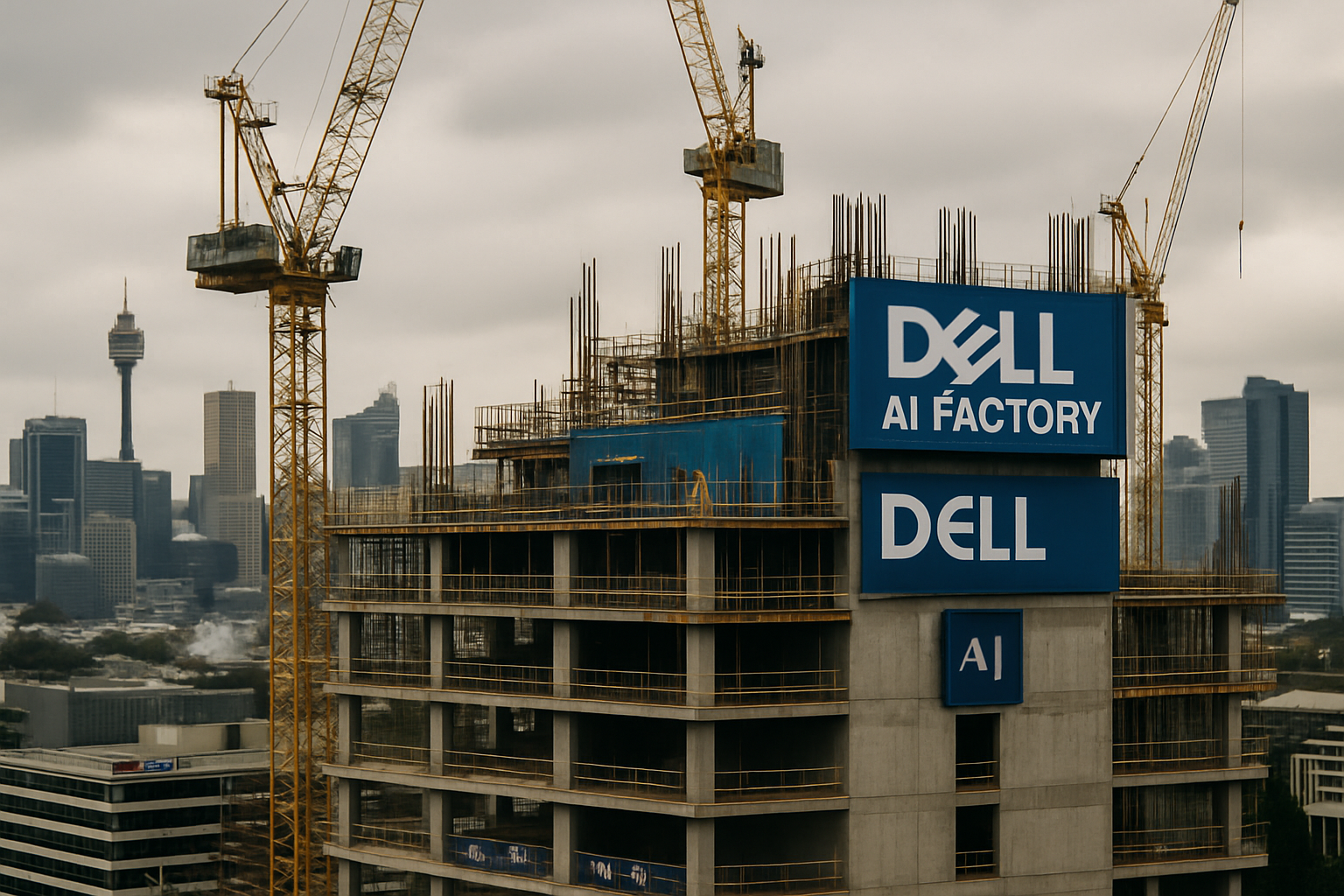Quick Take
- Dell and Macquarie partner on Australia’s first sovereign AI facility in Sydney
- 47MW data centre targets healthcare, finance sectors by mid-2026
- Addresses national security risks from foreign technology dependency
- Australia lags global peers who invested over $10 billion in AI infrastructure
- Private sector fills gap where federal funding remains absent
Dell Technologies and Macquarie Data Centres have announced a strategic partnership to build Australia’s first sovereign AI facility. The 47MW IC3 Super West data centre will serve highly regulated sectors including healthcare, finance, education, and research when it opens by mid-2026.
The partnership directly tackles warnings from Sue Keay, director of the UNSW AI Institute, who highlighted Australia’s “relentless determination” not to invest in sovereign AI infrastructure as a strategic risk. “We cannot assume in the current geopolitical context that these technology providers will act in our national interest,” Keay told W.Media, emphasising the vulnerability created by over-reliance on foreign tech companies.
Foreign Dependency Creates Strategic Vulnerability
Australia falls significantly behind developed nations in AI infrastructure investment. While Taiwan committed over AUD 10 billion to AI development, and countries like South Korea, Japan, the US, and EU members made substantial federal commitments, Australia has yet to dedicate national funding to computing facilities or AI data centres.
This partnership marks the first major private sector move to bridge the critical gap. The facility will host the Dell AI Factory with NVIDIA to create a compliant environment for sensitive data processing within Australian borders.
Compliance Meets Innovation Strategy
“Together, we are enabling organisations to develop and deploy AI as a transformative and competitive advantage in Australia in a way that is secure, sovereign and scalable,” said Jamie Humphrey, Dell’s general manager for Australia and New Zealand.
The sovereign facility tackles unique needs of organisations in critical infrastructure and highly regulated sectors. By keeping data processing within Australian borders, companies can harness AI capabilities while meeting strict regulatory requirements.
David Hirst, CEO at Macquarie Data Centres, stated: “For Australia’s AI-driven future to be secure, we must ensure that Australian data centres play a core role in AI, data, infrastructure, and operations.”
Healthcare and Finance Drive Early Adoption
The healthcare and finance sectors face particularly tough regulatory compliance requirements related to data storage and processing. These industries need secure, compliant foundations to build, train, and deploy AI applications without compromising data sovereignty and integrity.
The facility will support enterprise AI, private AI, and cloud-based projects, providing capacity for advanced applications including AI digital twins, agentic AI, and private large language models. Projects will range from medical AI digital twins to private financial modelling systems, all while maintaining regulatory compliance.
Global Context: National Technology Sovereignty
The initiative aligns with the Australian Government’s “Future Made in Australia” agenda, which links AI and data infrastructure to economic productivity targets. This policy mirrors global trends where nations prioritise technological sovereignty.
In the US, the CHIPS Act allocated billions for domestic semiconductor manufacturing. The EU’s Digital Decade strategy aims to achieve digital sovereignty by 2030. Australia’s private-public approach represents a different model but addresses similar strategic concerns.
Market Impact and Industry Implications
The IC3 Super West could support approximately 150-200 enterprise AI deployments simultaneously by 2027, based on industry-standard AI workload power consumption of 200-300kW per large-scale deployment.
Success will likely speed up government mandates for domestic AI infrastructure across critical sectors, while increased private capital flows into Australian data centre and AI infrastructure projects are expected following this precedent.
The partnership signals broader Asia-Pacific competition for technological independence from traditional suppliers, marking a geopolitical shift in regional AI infrastructure strategy.






